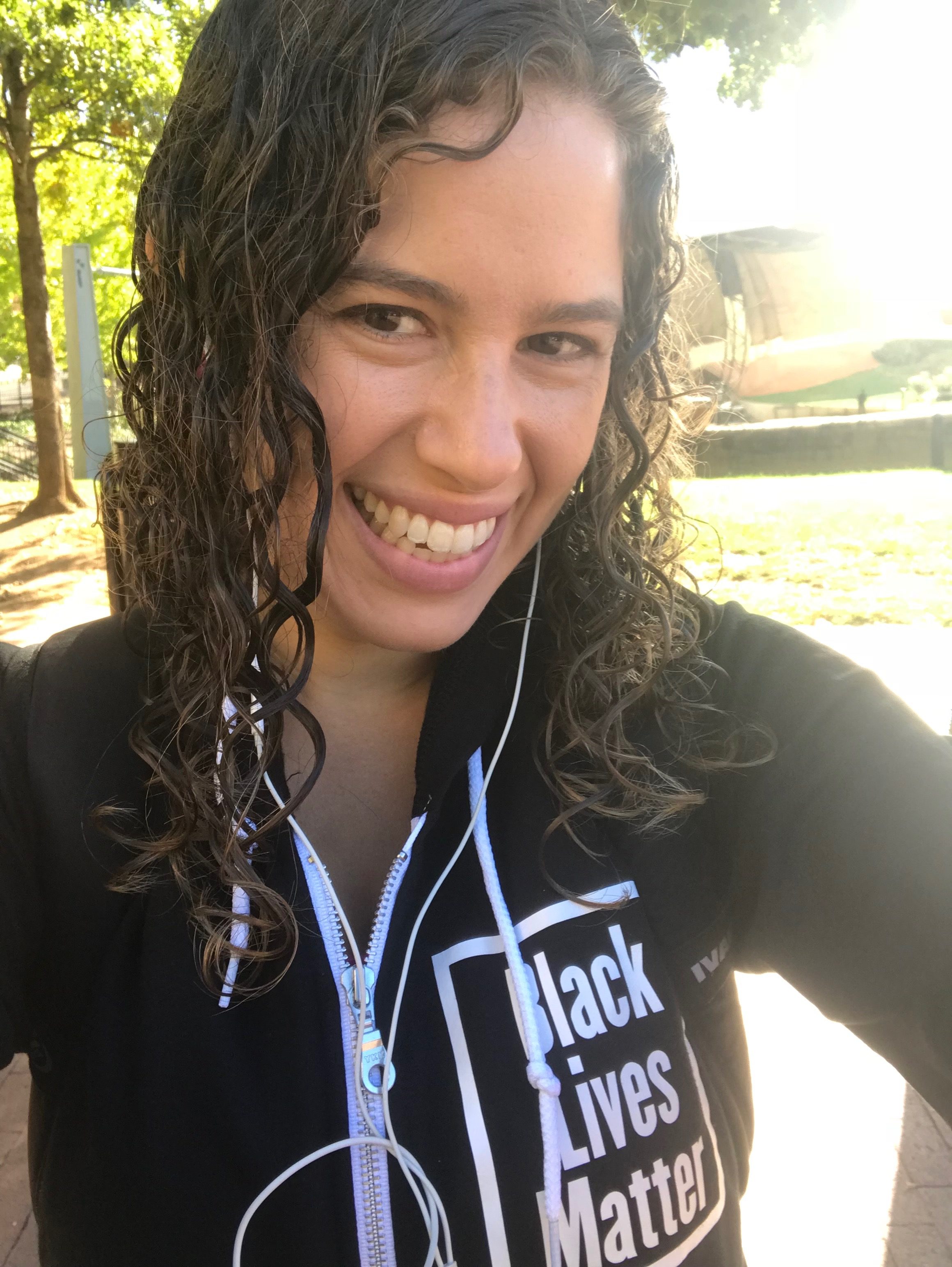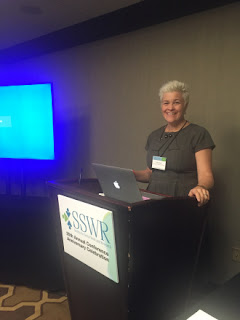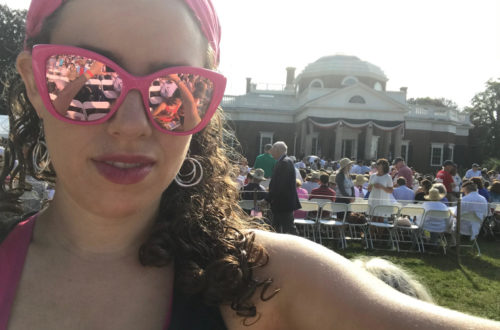Missy Bird, doctoral student in Social Work, reached out to me last week to share her crowd-funding campaign for her dissertation research – and a book she plans to write! – examining access to pregnancy prevention in rural Southern California, in a community that includes White people and People of Color, specifically many Latinxfamilies facing language and documentation barriers. In order to start a conversation with Missy about her work, I drew upon the researcher reflection questions from the SRA #BlackLivesMatter syllabus developed by Elise Harris, Lisette DeSouza, and myself.
Missy: I chose this community because of high rates of unintended pregnancy, its status as a rural community, high rates of poverty, proximity to my house (it is only a three hour drive), proximity to the border of Mexico, lack of research in that county, and the fact that a reproductive health clinic was built there recently to HUGE uproar.
Mimi: What’s motivating you?
Missy: I want policymakers to understand the steps to get contraception, from deciding whether or not to tell partner/s, figuring out child care, transportation, what type, what provider, safety, cost, I could go on and on. I want women to discuss their use of contraception, their experiences living in rural America, and how poverty and religion impact their ability to talk about sexuality (and thus reproduction).
Mimi: I want to name that you are talking about cisgender women.
Not all women have the same needs regarding reproduction. And there are people who are transgender or genderqueer who can and do use contraception, seek pregnancy prevention, and get pregnant. It sounds like your interviews will be specific to people assigned female at birth who currently identify as women. Have you thought about whether you will include queer women?
Missy: The inclusion criteria for the research is women 18-44 who are accessing one of two specific clinics for reproductive health care.
Mimi: So, you are not seeking out people of queer or trans experience. But. When we talk about reproductive justice, that must include trans justice and queer justice. And racial justice.
What am I ready to risk? Through several phone conversations and email exchanges, Missy let me ask her some hard but necessary questions about our role as White researchers in addressing health, justice, and structural racism within White systems of power.
Mimi: In March, at the SRA #BlackLivesMatter preconference conducted in collaboration with Black activists in Baltimore, activists warned us of the harm that can be done when (particularly white) researchers create our own research projects without directly collaborating with community organizers. How are you grappling with this message, as you move forward with your research plans?
Missy: I’ve interviewed 17 community leaders — high level decision makers, health center administrators and staff, and thought leaders shaping moral, ethical, and legal arguments about women’s reproductive healthcare in the targeted area.
Mimi: Did you ask them what they want or need, or action steps they want other people to take?
Missy: I did not ask for action steps, but I did ask what the community needed. Their answers varied but the bottom line was: they want their population to be healthy and strong so that they can have healthy families that contribute to the larger society as a whole.
Mimi: Beautiful words, right? One of the core tenets of the reproductive justice movement is that reproductive justice will require racial justice. What does it mean for us as White people to be repeating high hopes for “healthy families” when there are Latinx families getting separated by deportation, Black children and parents being killed by the police. Frameworks such as “health” and “contribution” are so often coded terms that perpetuate racist narratives such as “individual responsibility.” And then we locate “unhealthy” as if it is within marginalized communities — but really the root cause is in the White systems, in structural racism. What does this mean for my role as a White person in the field of sexual and reproductive “health”? What was that like for you, to connect with community leaders and stakeholders as a White researcher? What questions did it raise?
Missy: One of the things I have really been reflecting on is whether or not I am clear on the difference between reproductive access and reproductive justice. Every step of the way in developing my project I have been questioning myself about whether what I am talking about addresses the complexity and entirety of women’s reproductive lives. I am really aware of my Whiteness. My original assumption of course was, well if there were more resources (e.g., clinics/physicians) then more people would be able to access health care. But to consider racism, hostile immigration policies, and extreme poverty, issues of justice are about more than sexuality. For myself and other White women, even poor White women, access becomes much less of an issue. I have had to expand how I look at access, making sure that I am talking about justice, not just access.
Mimi: I’m trying to get at a personal, emotional process here too. Something we can’t just be alone checking our own thoughts. I definitely can’t. That’s why I seek out conversations – to trouble the assumptions that I’ve internalized deeply. For example, you said in an email, “my purpose on earth is to tell people’s stories.” I want to trouble that with you a little. What are your intentions? What are the risks? How might your impact be different from your intentions?
Missy: I will interview 50-60 women and then write a book. I have been telling peoples stories for years. I genuinely and authentically want to tell these stories because I believe there is a story to tell. Maybe I am wrong and I will find out I am wrong. I appreciate where you are coming from with this, but I don’t know what more to say. I have really thought about this a lot over the last two years. Maybe the risk is that this isn’t important enough, that no one really cares about women because they are just vessels to be used for a purpose and if they don’t serve the purpose then whatever they have to say doesn’t matter. But that isn’t right. Women’s experiences are important, and I want to talk about them because it brings me joy to do so.
 Mimi: You name a number of goals – personal joy, policy change… and also this will be your dissertation work to earn a Ph.D.
Mimi: You name a number of goals – personal joy, policy change… and also this will be your dissertation work to earn a Ph.D.Missy: I am pursuing my PhD. I do want to write a book about women’s lived experiences. And I want my research to mean something.
Mimi: What your research will mean is dependent on who you are and how you go about it. In qualitative research we talk about reflexivity – considering how your “findings” will be constructed through you – who you are, what your participants will tell you, what you are attending to as you speak to them and write about them.
Missy: Yep, this is qualitative research, and I don’t know yet how the interviews will be constructed through me. I don’t have any idea what this is going to look like because I haven’t collected the data. I can’t say how I will write the book. It will be a very typical research book, much like the kinds we read in our coursework. With quotes and analysis and such but not direct transcripts. It will focus on themes, but I can’t decide the themes before I get into the data. What is their agenda? What do they want? Maybe all of the 17 stakeholders I talked to are wrong. Maybe I am wrong. Maybe none of us have ANY earthly idea what women really want or need. Until I have completed this next phase of my project neither I nor my committee nor the stakeholders that I interviewed can tell me for sure.
Mimi: There is so much more I want to ask you about how your relationship with your own Whiteness will shape what you do and how you do it. So let’s keep talking about that as you move forward. But now, tell me: What scholars of color have influenced your thinking about reproductive justice, and what pieces will you be sure to credit and cite?
Missy: Dorothy Roberts, Zakiya Luna, and Kristin Lukerare three scholars I credit and cite in any of my work that references reproductive justice. These are the two articles I cite in my proposal:
Mimi: You ask for $28,000 to fund this research project. At the same time, there are many scholars and activists of color seeking funding for their reproductive justice work. Tell me about some individuals and organizations who are also in need of financial support.
Missy: I don’t even know how to answer this, but would love some suggestions.
Mimi: I’ll start with these three organizations – there are so many more.
Sister Song: Women of Color Reproductive Justice Collective– debuted the term “reproductive justice” in 2003 – see writing by Loretta Ross
California Latinas for Reproductive Justice – who also have a research program!
Mimi: Now I’ll come back to what I said at the beginning about framing and language that is queer and trans inclusive. Try to tell me about your work without equating the category of “women” with the category of “people who can get pregnant.”
Missy: My interviews are with women who are specifically seeking contraception and abortion services with the express purpose of not wanting children. I am not sure how to elaborate on this as a queer and trans issue. It is not my area of expertise nor is it the focus of my research.
Mimi: I’m not trying to say that your project needs to include queer and trans people if you’re not prepared to do that or if that’s not part of your research question. But whenever we talk about women we need to make clear, within ourselves and through our language, that not all women have bodies that can become pregnant, and not all people seeking contraception and abortion services are women. And trans justice and reproductive justice are inherently linked. Here are some people who say it way better than I do: Verónica, Jack Qu’emi, KaeLyn, and Jos Truitt. Read what they write!
See Missy’s crowdfunding campaign to learn more about her research. Also, I’m looking for more researchers who want to continue having these conversations – either confidentially or for another blog post. Volunteer yourself or nominate a friend! I am specifically seeking to engage with other White researchers, and I would also be thrilled to personally connect with and/or publicly feature any People of Color who have feedback, push-back, or other thoughts and feelings to share.



One thought on “Joint Reflections on Whiteness in Research: Missy Bird’s work on Contraceptive Access”
Comments are closed.